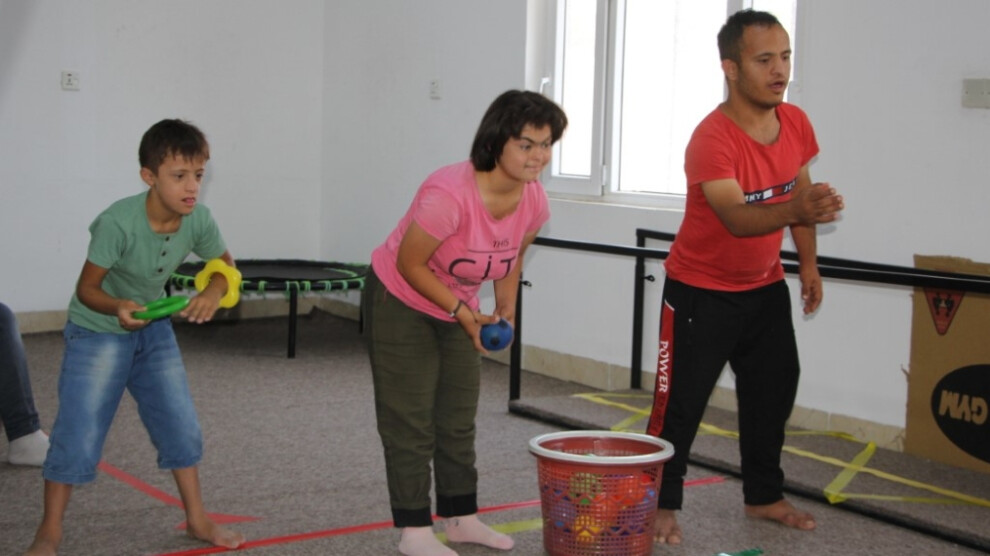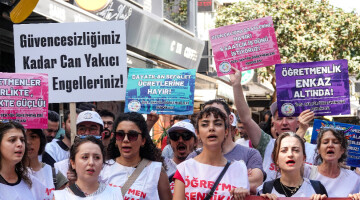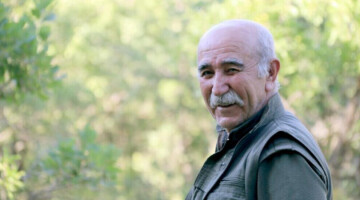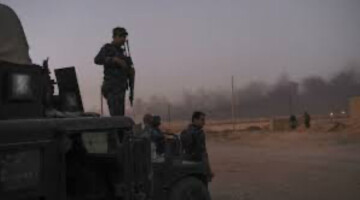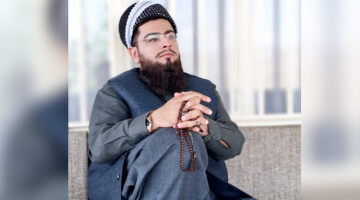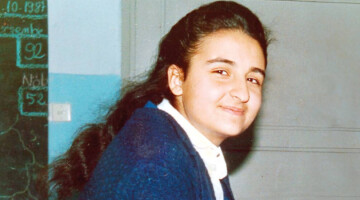The Martyr Rüstem Cudi Refugee Camp is located on the skirts of Qereçok Mountain in the Maxmur district of Mosul. Nearly 12 thousand citizens from North Kurdistan, who had to migrate to South Kurdistan in 1994 due to the brutal destruction campaign of the Turkish state, reside in the camp. Apart from the attacks of the Turkish state, the KDP has been imposing an embargo on the Maxmur Camp for the last three years.
On 17 July 2019, the KDP administration imposed an embargo on the camp and did not allow anyone in the camp to enter Hewler (Erbil). Dozens of patients with serious health problems are still denied access to Hewler due to the embargo. One day after the embargo, on 18 July 2019, Turkish fighter jets bombed the camp, injuring two residents.
The ‘Hope Centre’ (ku. Navenda Hêvî) inside the Maxmur Camp was established as a special school for children with down syndrome and autism with special needs. The school is one of the rare examples among refugee camps and very few in the world.

The ‘Hêvî Centre’ Director Salih Babat spoke to Rojnews agency about the impact of the embargo on the Maxmur Camp and especially on children with down syndrome and autism.
Babat stated that the Hêvî Centre was established in September 2018 under the leadership of Maxmur Health Management: “Friends who graduated from the psychology department undertook the Hêvî Centre project. Under regular conditions, 25-28 children are educated within the centre. However, families cannot bring their children due to their circumstances. Education is provided five days a week with 5 teachers and 25 students.”

'Not a disease, but a difference'
Babat told that apart from the special education, physical therapy is provided for some children in the centre, accompanied by group activities on some days. “Some children are given special education. This training is provided for children with down syndrome and autism, as well as for those with disabilities. Children with down syndrome have one more chromosome than normal children. The cause of autism is not yet known worldwide. According to the theories, the reason may be the environment, or something derived from the mother and father. We can't call it a disease, but a difference. Autism is dealt with through special education.”

'There is awareness, but mostly just talk’
Babat pointed out that there was awareness throughout the region, but this was mostly just talk. “Neither the regional government nor the Iraqi government has provided proper assistance to the centre. Only in Europe, associations such as the Freedom for Kurdistan and the Hope Initiative delivered material and financial aid to the centre in 2018 and they introduced us through catalogues and exhibitions in Germany. Between 2019-2020, the Kurdistan Red Crescent in Switzerland helped with the construction of the centre. Moreover, an Italian group helps the centre from time to time, but not on a regular basis,” he noted.
Babat stressed that they are not recognized officially in the Kurdistan Region and Iraq, as they are only regarded as a camp institution. “Centres like ours provide services in cooperation with both the Ministry of Education and the Ministry of Health. On this basis, we contacted the Ministry of Education and submitted the relevant documents. A delegation from the Iraqi government came here and examined the centre. They said that they would visit the centre again in the future and grant official status to it. But that was just talk,” he continued.

'They need to go out so that they don't feel alone'
Babat spoke about the embargo imposed on the camp for the past 3 years: “We wanted to contact the families about the psychological problems of the children. We wanted to show the children that there are others like them, so they do not feel alone here. It would make them happier to know that there are special children like them. If there was no embargo, we would have organized outdoor activities. With these activities, communication could be established between the children in question. However, unfortunately, this is not possible. The Kurdistan Regional Government has been subjecting the camp to an illegal embargo for 3 years.”

'They haven't seen their doctors for three years'
Babat emphasized that they could not take the children out because of the embargo. “A few days ago, we went to Sulaymaniyah for the diagnosis and treatment of the children. It took us 7 hours from here to get there. Long journeys could be very annoying for children. Some of them can't even handle that much time. If there was no embargo, we could have gone to Hewler in an hour. Medicines are crucial for children. When they do not take their meds, they cannot progress. They have private doctors, but they have not been able to see them for three years, which negatively affects their health.”

'If the embargo continues, the children’s development will fall back'
Babat underlined that if the embargo continues, the children’s educational development will fall back. “We want to improve ourselves and progress. Those who want to contribute to our activities can contact us through our social media accounts. We cannot provide a service outside the centre. Continuing education should be secured, but we do not have the opportunity to do so. We cannot halt their education. Since there are pauses, the children’s development also falls back,” he noted.
Babat appealed to the political parties and human rights institutions in Kurdistan and abroad, saying: “This embargo has no legal basis. The Regional Government, especially the KDP, imposes an embargo on the camp at the request of some people. People should raise their voice in order to break the embargo.”
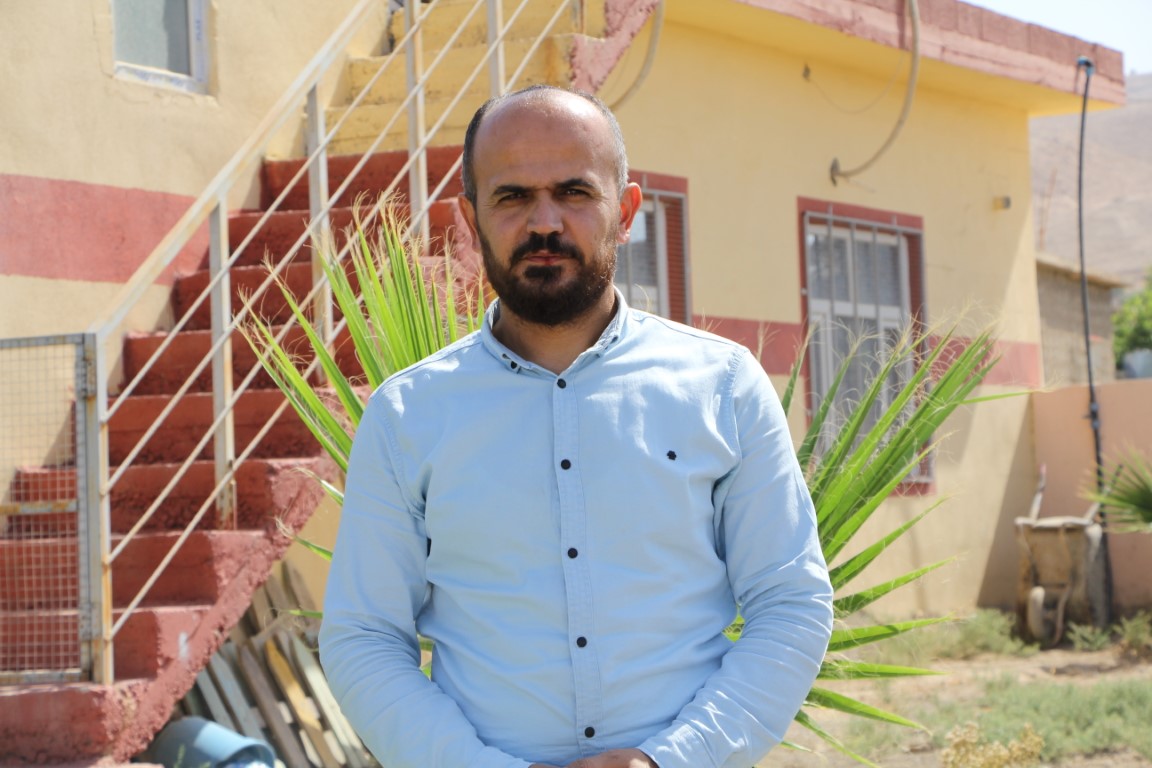
Turkish attacks on the camp
On December 6, 2017, Turkish fighter jets bombed the Maxmur Camp. 5 members of the Self-Defence Forces, Bager Boran, Botan Amed, Çekdar Mawa, Dewran Mardin and Baz Dijwar, were martyred in the attack.
On 13 December 2018, Turkish fighter jets bombed the camp, killing 73-year-old Asya Eli Mihemed, her 26-year-old daughter Narinç Farhan Qasim, her 14-year-old grandson Evin Kawa Mehmud and 23-year-old Eylem Mihemed Emer.
Attacks on the camp during the embargo
On July 18, 2019, Turkish fighter jets bombed the camp once again and two camp residents were injured.
On April 15, 2020, a Turkish drone bombed the camp, leaving three young women in the camp dead.
On June 15, 2020, Turkish fighter jets heavily bombed the vicinity of the Maxmur Camp and Qereçox Mountain. No casualties were reported.
On May 5, 2021, Turkish drones attacked the Maxmur camp.
On June 5, 2021, armed reconnaissance planes of the Turkish army dropped bombs on the camp area where schools and parks are located, but no casualties were reported.
On September 3, 2021, Turkish drones bombed the Maxmur Camp, injuring a mother and a child.
On February 1, 2022, Turkish fighter jets once again bombed the Makhmur Camp, targeting the Self-Defence Forces. 2 members of the Self-Defence Forces were martyred and dozens of citizens who wanted to help their relatives were injured.
On May 21, 2022, a Turkish drone bombed a vehicle in the Maxmur Camp. A shepherd named Haci Mirza Eli was martyred.
On July 5, 2022, during the visit of the Iraqi Army General Commander, the Joint Operations Commander and several high-ranking commanders to the camp, a Turkish drone targeted a civilian house, leaving a woman injured.

